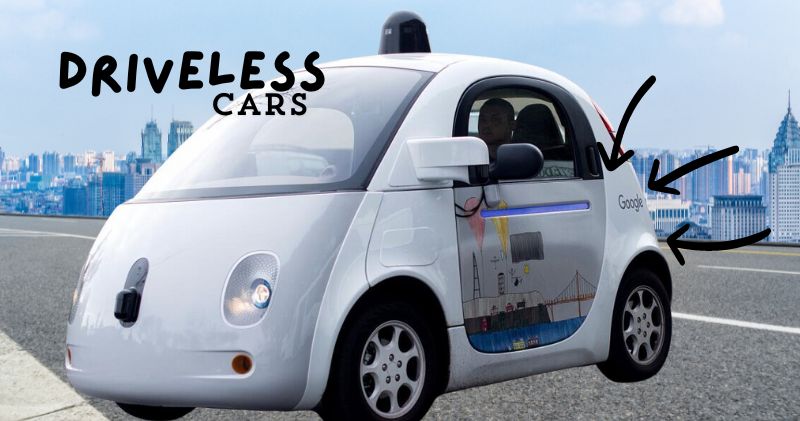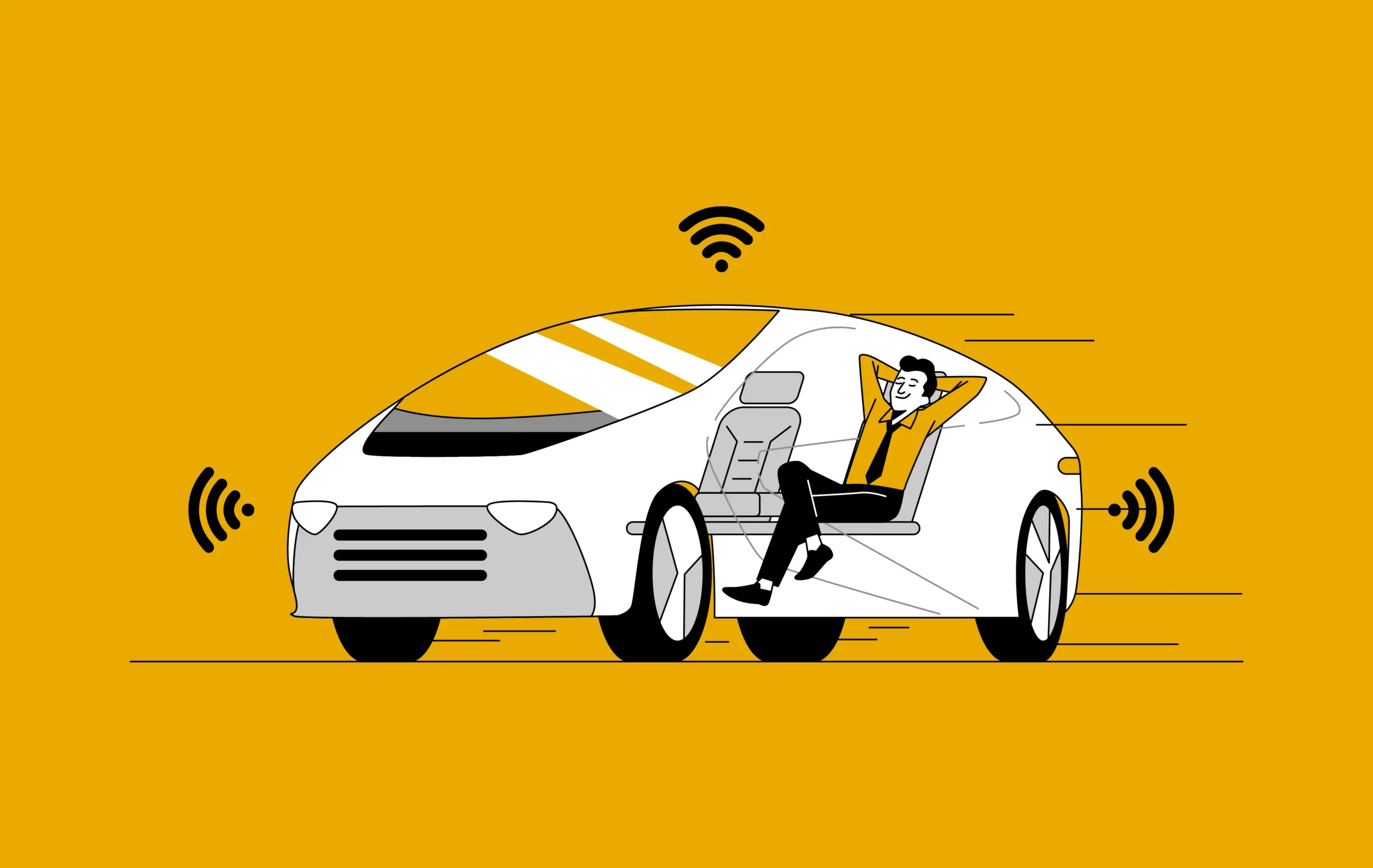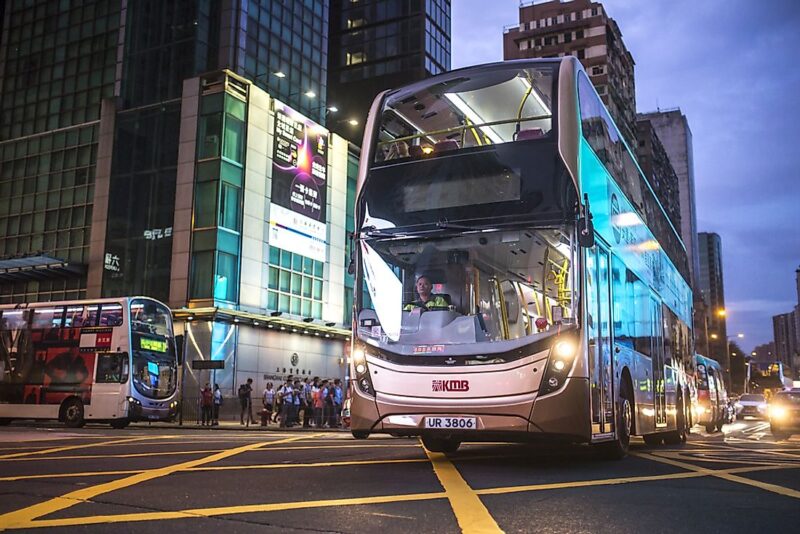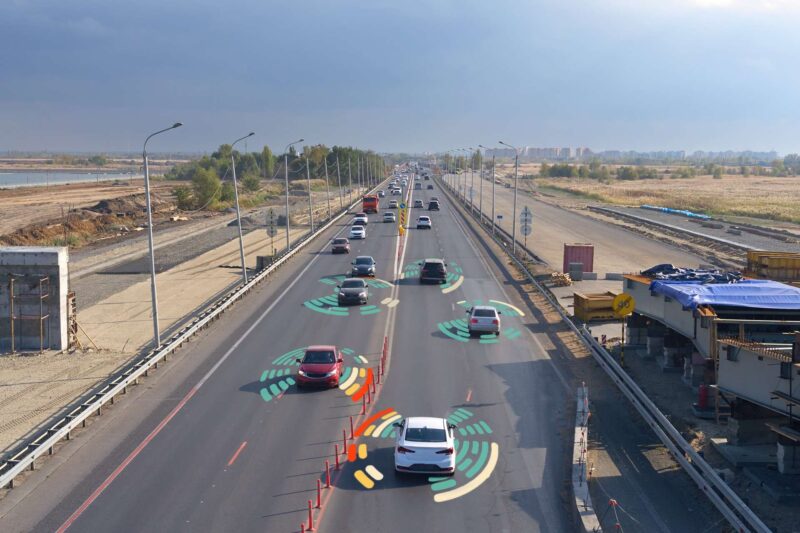Driverless cars have intrigued humans for centuries. Leonardo Da Vinci sketched a self-driving cart in the late 1400s, and mechanical autopilots for airplanes appeared in the 1930s.
The concept of a self-driving car was showcased at the New York World’s Fair in GM’s Futurama exhibit.
Today advances in GPS, digital mapping, computing power, and sensors have made driverless cars a reality.
But what are their potential impacts on the car industry and the broader economy?
Key Takeaways
- Driverless cars have the potential to revolutionize the economy, transform industries, and create new business opportunities.
- They will create jobs in sectors like software development, data analytics, and autonomous vehicle maintenance.
- Car manufacturers must adapt their business models to focus on software development, AI integration, and data management.
- Optimized travel time can increase productivity, boosting economic output and benefiting both businesses and individuals.
Impact of Driverless Cars on the Auto Industry

The automobile industry has been historically slow to embrace technological change. Traditional car makers have hesitated to develop fully-featured electric cars, allowing start-ups like Tesla Motors (TSLA) to take the lead in innovation. If self-driving cars become widespread, technology companies like Google or Apple (AAPL) are likely to dominate, potentially reducing the profits of traditional car companies like GM, Ford (F), and Toyota (TM).
Specific Impacts of AVs on the Automobile Industry
Let’s explore the specific ways autonomous vehicles (AVs) could impact the automobile industry.
Business Models Changes
The rise of autonomous vehicles is driving a shift in the traditional business model of the auto industry.
In 2023, the autonomous vehicle market was valued at $33.5 billion and is projected to grow to over $93 billion by 2028.
Rather than just manufacturing and selling cars to individual consumers, automakers are exploring new revenue streams through mobility services.
This includes developing autonomous ride-hailing services, car-sharing platforms, and subscription-based models where customers pay for access to a fleet of autonomous vehicles instead of owning a car.
To implement these changes, automakers may need to partner with tech companies and mobility service providers to offer integrated and seamless mobility solutions.
New Automakers
The development of autonomous technology has attracted tech giants and startups to the auto industry. Companies like Google, Tesla, and Apple are heavily investing in AV technology, creating new competition for traditional automakers. As a result, the auto industry is becoming more competitive in the race to deliver reliable and safe autonomous vehicles.
Interior Design
Autonomous vehicles open up new design possibilities since passengers won’t need to focus on driving. Interiors can be reimagined to be more comfortable and provide features for productivity or entertainment.
Additionally, advanced sensors and AI technology integration require automakers to rethink vehicle architecture to optimize sensor placement and ensure maximum safety. These changes are evolving the future design and operation of cars.
Data Interconnectivity
Autonomous vehicles generate vast amounts of data through their sensors and AI systems.
This data is invaluable for improving autonomous algorithms, enhancing safety, and optimizing traffic flow. As the use of this big data evolves, city municipalities can leverage it to better understand traffic patterns, driving behaviors, and ways to improve urban planning.
Supply Chain Adjustments
The shift to autonomous vehicles will impact the automotive supply chain.
Automakers will need to collaborate with new suppliers for specialized AV components, such as advanced sensors and AI processors.
This technology will also require changes in manufacturing processes, quality control, and testing protocols to ensure the safety and reliability of autonomous vehicles.
Regulatory Challenges
The introduction of autonomous vehicles presents complex regulatory challenges. Governments and policymakers must create a clear legal framework and standards to govern AV operations, safety testing, liability, data privacy, and cybersecurity.
With approximately 1.3 million people dying each year from road traffic crashes, harmonizing regulations across regions and countries will be essential for the global development and deployment of autonomous vehicles.
Impact on Auto Insurance
Driverless cars promise increased safety and a reduction in accidents. With the elimination of drunk driving, for instance, the number of accidents could drop significantly, impacting car insurance companies like Allstate (ALL), GEICO (BRK.A), and Progressive (PGR).
Fewer accidents would lead to lower insurance costs, affecting the profitability of insurance companies.
Impact on the Greater Economy

Employment
The advent of autonomous vehicles raises concerns about job displacement for professional drivers, such as truck drivers, taxi drivers, and delivery drivers.
However, new job opportunities will emerge in overseeing AV fleet operations, maintenance, and software development.
The auto industry will need to manage this transition and invest in retraining programs for affected workers.
Environmental Impact and Fuel Consumption
Safer driving and optimized traffic flow can reduce fuel consumption and emissions, contributing to sustainability efforts.
AVs can be programmed to optimize driving patterns, maintain consistent speeds, and avoid aggressive acceleration or braking, leading to smoother traffic flow and improved fuel efficiency.
They can also employ eco-friendly driving strategies, such as predictive cruising and route planning.
Consumer Behavior
Private car ownership may decline as driverless cars can be summoned using ride-hailing apps, reducing the need for personal vehicles.
A decentralized fleet of driverless cars could be shared among many users, which might negatively impact car sales but free up consumer resources (time and money) for other uses.
Urban Development
Driverless cars could change urban development and infrastructure planning.
Reduced demand for parking spaces may lead to the repurposing of parking lots and garages for other uses.
Cities may need to adapt their transportation infrastructure to accommodate AVs, resulting in public and private investment opportunities.
Corporate Productivity
With AVs handling driving, commuters and businesses can use travel time more efficiently.
Passengers can work, relax, or engage in other activities during their journeys, leading to increased productivity.
Businesses may benefit from improved logistics and delivery processes, reducing operational costs and enhancing overall economic output.
Safety of Driverless Cars
Driverless cars are designed with multiple safety systems, redundancies, and fail-safe mechanisms to minimize risks.
The technology aims to significantly reduce accidents caused by human error, which account for a large percentage of road crashes.
Extensive testing and validation processes are conducted to ensure the safety and reliability of AVs, though their full reliability is yet to be fully determined.
Role of Artificial Intelligence in Driverless Cars
Artificial intelligence is the driving force behind autonomous vehicles.
AI algorithms process sensor data, recognize patterns, identify objects, and make real-time decisions on how to navigate safely.
The continuous learning capability of AI enables AVs to improve their performance through data analysis and experience.
Challenges Facing Driverless Car Adoption
Key challenges to driverless car adoption include regulatory and legal frameworks, safety concerns, public acceptance, cybersecurity, and data privacy.
Additionally, integrating autonomous technology with existing transportation infrastructure presents technical and logistical challenges.
Privacy Concerns with Driverless Cars
Driverless cars collect vast amounts of data from their sensors and cameras, raising privacy concerns.
Ensuring transparent data management, data anonymization, and robust cybersecurity measures are crucial to address these privacy issues and gain public trust in the technology.








